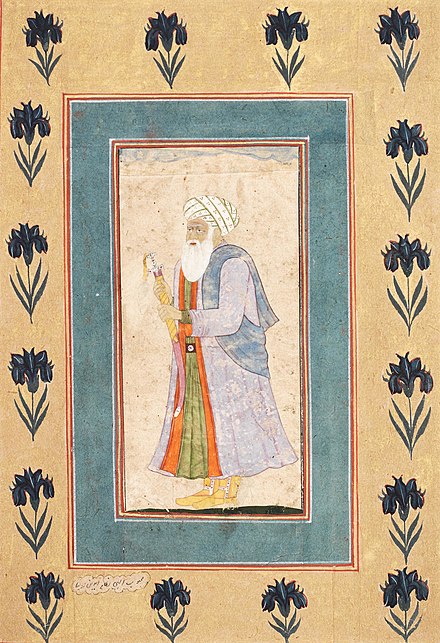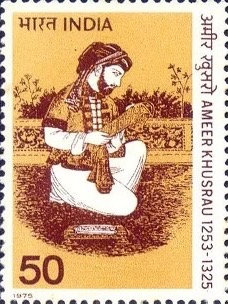
There is a Sufi story told of how a poor farmer had journeyed to Delhi to beg for some financial help from the great Sufi saint Hazrat Nizamuddin Aulia.
After some days of staying at the home of the holy man, the peasant realised that he was not going to receive the money which he had hoped for. Accordingly, he went to the saint to bid him farewell, but to his surprise and confusion, Hazrat Nizamuddin Aulia gave him a gift of his own well-worn slippers.
The poor man, disappointed and dispirited, began the long journey back to his village taking, rather reluctantly, the holy man’s slippers wrapped in his turban. He was not consoled by imagining the mocking laughter of fellow villagers that would surely greet him on his return.
On the way, he met a richly dressed disciple of Hazrat Nizamuddin Aulia who halted before him, sensing the fragrance of his master about the farmer.
When the rich man discovered that the farmer was indeed carrying something of the holy man, he offered to give his horse, a bag of gold, and the very silk coat he was wearing in exchange for the blessed slippers.
The farmer, thinking he had come face to face with a rich but genial madman, thought himself lucky to make such a fine bargain, and gladly gave the worthless slippers for the riches.
The story concludes that each felt that they had gained the greater treasure.
Jane Sahi, A Treasurehouse of Stories
http://www.journal.kfionline.org/
Image: Mughal painting of Nizamuddin Auliya, courtesy Wikipedia
Here is another version of the story:
Hazrat Ameer Khusrao was the most beloved disciple of Hazrat Nizamuddin Auliya. He was the only one who could enter the room of his murshid (spiritual guide) at all times of the day. He was also a courtier. He was in the service of several sultans.
One day he had participated in a successful campaign of the sultan. He wanted to return to his murshid and received permission from the sultan to return. The journey from Bengal to Delhi was a long one and he stayed in several inns along the way. He returned with camels and horses loaded with wealth.
When he was near Delhi something strange happened. When staying in an inn he exclaimed: “Buye shaykh miaayad! Buye shaykh miaayad!” This means: “The perfume of my shaykh has come! The perfume of my shaykh has come!”
He then made enquiries and ultimately met a man who had come to Hazrat Nizamuddin Auliya asking for alms. As there was nothing in the khaneqah (a building or public space where members of the Sufi faith gather to perform rituals and have spiritual retreats), the shaykh gave him his own pair of sandals. This man had left the khaneqah disappointed as he only received a torn and tattered pair of sandals.
Hazrat Ameer Khusrao then bought these sandals from the man he met in the inn and paid for them with all his camels and horses together with all the wealth they carried. He returned to his murshid and carried the sandals on his head as a kind of crown.
When asked what he had paid for those sandals he answered: “I have given away all my wealth.” Hazrat Nizamuddin Auliya then said: “Arzaan kharidi”, which means: “You have bought them at a cheap price!” Hazrat Ameer Khusrao confirmed this and added: “But I would have paid for them with my life, if necessary!”
Courtesy: https://sufi-tavern.com/
Khawaja Syed Muhammad Nizamuddin Auliya (1238-1325), also known as Hazrat Nizamuddin, was an Indian Sunni Muslim scholar, Sufi saint of the Chishti Order, and one of the most famous Sufis from the Indian subcontinent. Nizamuddin Auliya, like his predecessors, stressed love as a means of realising God. For him his love of God implied a love of humanity. His vision of the world was marked by a highly evolved sense of religious pluralism and kindness.
Image above: Mughal painting of Hazrat Nizamuddin Auliya, courtesy Wikipedia.

Abu’l Hasan Yamīn ud-Dīn Khusrau (1253-1325), better known as Ameer Khusrau, was an Indo-Persian Sufi singer, musician, poet and scholar who lived during the period of the Delhi Sultanate. He is an iconic figure in the cultural history of the Indian subcontinent. He was a mystic and a spiritual disciple of Nizamuddin Auliya of Delhi. He wrote poetry primarily in Persian, but also in Hindavi (Hindustani). Khusrau is sometimes referred to as the “voice of India” or “Parrot of India” (Tuti-e-Hind), and has been hailed as the “father of Urdu literature.” He is also regarded as the “father of qawwali” (a devotional form of singing of the Sufis in the Indian subcontinent), and introduced the ghazal style of song into India, both of which still exist widely in India and Pakistan.
Image: Commemorative postage stamp on Ameer Khusrao issued by India in 1975.
